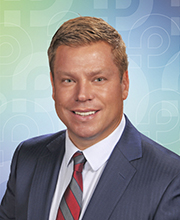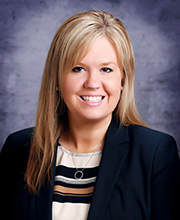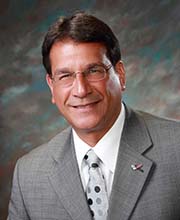YOUNGSTOWN, Ohio – Area lenders report businesses continue to borrow money, regardless of the interest rate charged.
Some report seeing record numbers last year and are optimistic about what 2023 will bring, while others are more cautious.
The Business Journal contacted executives at six area financial institutions to learn their perspectives on the local market: William Shivers, Farmers National Bank; Josh Toot and Brian Ignazio at Premier Bank; Brett Carnahan and Dan Harp, 717 Credit Union; Ted Schmidt, PNC Bank; Maggie Ference, Huntington National Bank; and Peter Asimakopoulos, First National Bank.
What follows are their perspectives.
FARMERS NATIONAL BANK

At Farmers National Bank in Canfield, “We’re seeing some activity but the interest rates have definitely slowed the appetite,” says William Shivers, chief commercial lending officer. The prime rate stands at 7.75% and no one knows what the Federal Reserve will do this month, he says.
Many manufacturers are still doing well and have “great backlogs and great opportunities,” he says, but issues remain with obtaining raw materials as well as equipment.
“Companies are looking at it from a cash flow perspective and it’s becoming more difficult to justify purchasing a piece of equipment or making that capital expenditure,” Shivers says. Many companies that have business opportunities are considering whether they can make an investment at fixed rates at least double what they were.
Commercial real estate is one area where Shivers sees retrenchment. While there are opportunities in multifamily residential space, developers are taking what he calls “a second look” and considering whether now is the right time when they would be borrowing at 7.5% or 8%.
They also have to consider availability of materials in projects of this scope and how delays can affect the project, as well as wage inflation.
“The demand still may be there but from an investment perspective, they’re taking a much deeper look at it to say does it make sense to do it right now,” Shivers says.
PREMIER BANK

Business and commercial loan activity last year was up 15% from 2021, which previously was “the biggest year we’ve had,” says Josh Toot, Mahoning Valley Market president for Premier Bank. That’s despite widely discussed concerns about the economy and rising interest rates.
“A lot of people are still looking for capital,” Toot says. “A lot of that comes down to there was so much work out there and then the labor force started to squeeze back in, so people could churn out more.”
Interest rates are roughly 3% to 4% higher than 18 months ago. So the effect of borrowing at higher rates on a small business’s cash flow can be “pretty significant,” says Brian Ignazio, Premier Bank vice president and its director of business lending.

What Toot describes as a “fair amount” of the activity is loans to acquire companies, whether internally or by a competitor, and to buy equipment they couldn’t acquire because of supply chain issues and to address labor shortages. Borrowing to acquire real estate has slowed, which he attributes partially to the rise in interest rates but also to scarcity.
“I don’t think there’s a lot of availability for free and clear real estate for sale right now,” he says. He also notes businesses were ordering cars and trucks a year or more in advance of delivery because if they didn’t place those orders early, they would never get their vehicles.
“That’s still an issue,” Toot adds. “It’s not fixed but it’s gotten better.
717 CREDIT UNION

At 717 Credit Union in Warren, “We’re seeing a mixed bag of several different elements,” says Brett Carnahan, vice president of commercial lending.
He describes business as “very active” for the first quarter and strong overall, with a “very stout” January followed by a “little bit of a breather” in February and March so far, he says.
Business lending is “surprisingly more active than what we were anticipating with interest rate hikes. But in our world, things sometimes take two months to close,” Carnahan says. “This is year-end [2022] stuff that’s getting to the closing table. The interest rate hikes that took place in January and February will have more of an effect in the coming months.

Carnahan points out that small businesses often need to seek financing to buy a needed piece of equipment or just for working capital regardless of the interest rates because they lack the resources of larger companies.
“When they need something, they need something,” Carnahan says.
Looking at specific sectors, transactions for multi-family space remain strong and the credit union reports “a decent amount of small-business requests for equipment” or small-business credit lines.
“Rental units are still going up now,” says Dan Harp, 717 senior vice president of lending. Interest in multifamily dwellings is driven by the persistent scarcity in the housing market and interest rate hikes that have made available properties more expensive for buyers.
On a limited basis, the credit union is seeing some businesses that operated virtual storefronts during the COVID-19 pandemic seeking financing to establish bricks-and-mortar operation, although that isn’t widespread, Harp says. Some investors have bought half-vacant commercial properties because they anticipate someone will come in to fill the space.
Carnahan also sees some recovery in hospitality, although not in all areas. Commercial office space remains tenuous, as businesses post-pandemic recognize “they don’t necessarily need 5,000 square feet of office space.”
PNC BANK

Despite rising interest rates, companies in the Mahoning Valley continue to make investments, says Ted Schmidt, Youngstown regional president for PNC Bank, Pittsburgh. The bank’s activity with business customers last year was above 2021.
“Even though we’re only two months into 2023, we’ve seen strong activity, both in building expansions and equipment purchases,” Schmidt says “We’re still optimistic that 2023 will continue at the same pace we had in 2022.”
As an offset to the higher interest rates, companies are closely looking at their controllable expenses. “Not that everybody’s making drastic cutbacks and tightening their belts across the board, but just looking at some of the expenses that they can minimize,” he says.
Customers in sectors comprising manufacturing, packaging and trucking indicate business is going well and report strong pipelines through the end of the year, according to Schmidt.
“We feel if goods are moving, that’s a pretty good indication of how strong the economy is,” he says. “There might be supply chain issues that could slow sustained growth. But they are confident that once the equipment comes in and is installed, they will be able to catch up.”
Despite worries about a recession, the majority of customers is “pretty optimistic that their own business is going to be better in the next six months,” Schmidt says. The main challenge they face is hiring qualified employees.
“That continues to be a challenge,” he says. “We’re seeing it in every industry.”
HUNTINGTON NATIONAL BANK

The pace of business lending tends to closely follow the prime rate, says Maggie Ference, senior vice president, business banking, credit and operations director at Huntington National Bank, Columbus. Huntington offers loans from 4.99% to a prime rate plus a variable rate structure.
“If you’re going to buy a piece of real estate, you’re likely to see a fixed rate. Same with something like a vehicle,” she says.
“If you’re in one of our higher risk programs based on being a startup, you might have prime plus one or prime plus two. It is a variable interest rate in that scenario so you would float as those rates change,” Ference continues. “Generally, we’re seeing probably on average somewhere around 8%, 9% right now.”
Ference praised the resilience of the small-business community as it emerged from the pandemic. Even with the “headwinds of recession that we continue to hear about,” rising interest rates and inflation that has caused items to be 30% more expensive than in previous years, 2023 is shaping up to be a “very bullish” year.
“We really continue to see a strong Midwest opportunity for so many businesses to grow and succeed in spite of a lot of the stories that we’re hearing right now. So I’m very optimistic,” she says.
FIRST NATIONAL BANK

Says Pete Asimakopoulos, executive vice president of small-business lending at First National Bank, “Given uncertainty around inflation and rising rates, I would say generally that the overall borrowing climate has softened.” First National Bank is based in Pittsburgh and has offices throughout the Mahoning and Shenango valleys.
Many businesses are in a wait-and-see mode and focused now on what they can do to preserve working capital or boost revenues “to build a cushion to weather a downturn,” he says. Given rising interest rates, refinancing activity is understandably down.
Despite the rate environment, First National Bank’s rates remain competitive to serve the needs of small businesses. The bank offers promotional rates on a quarterly basis and maintains a focus on relationships with customers, looking beyond loans to consider how to work with them to achieve their banking goals based on their total financial picture.
“We are still working with clients and prospects who need capital to fund expansion. And there is no reason a business with a solid cash position should hold off on an opportunity that is a good fit for their growth goals,” Asimakopoulos says. A demand remains for “financing toward growth initiatives or equipment purchases, including for larger vehicles or trucks,” the latter likely spurred partially by businesses’ efforts to keep up with the continued demand for online sales and delivery options.
More conversations also continue about cybersecurity and digital tools, Asimakopoulos says. Although that hasn’t translated into lending “in a meaningful way,” challenges and opportunities from increased use of digital technology are “top-of-mind for clients and prospects across the board” and represent an area “where FNB has established the expertise and product suite to add real value for consumers and businesses alike,” he says.
Consumer and business customers can access a suite of online and mobile banking solutions. “Our proprietary eStore platform, in particular, has enabled us to bring enhancements to market very quickly, with an even greater ability to customize products to our client needs,” he says.
